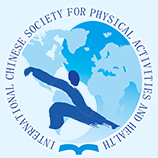Document Type
Abstract
Keywords
physical activity, sedentary time, sleep, college students, physical education
Publication Date
2-2023
Abstract
To investigate the independent and combined associations of physical activity and sedentary time on sleep quality among Chinese PE-majored and non-PE-majored college students. Participants were Chinese college students (N = 2347, Mage = 20 years, 24.6% students majoring in PE). All participants completed three questionnaires: the Pittsburgh Sleep Quality Index, the International Physical Activity Questionnaire-Short Form, and the Questionnaire on Adolescent Sedentary Behavior. Questionnaires were evaluated to ascertain the subjects’ sleep quality, physical activity level, and sedentary time. Analyses were conducted with a multivariate logistic regression model. Out of the total participants, 48.6% had poor sleep quality (PSQ) and 10% were at low physical activity levels, and the mean (±SD) sedentary time was 5.33±2.34 h/day. Sedentary time is significantly and negatively associated with sleep quality in college students with PE and non-PE majors. For non-PE-majored college students, (1) the risk of PSQ of those with low physical activity levels (LPAL) was 1.51 times higher than those with high physical activity levels (HPAL); (2) when increasing a sedentary hour per day, the risk of PSQ would be increased by 6.1%; (3) the risk of those with LPAL and high sedentary time (HST), moderate physical activity levels (MPAL) and high sedentary time (HST) was 2.65 and 1.52 times higher than those with HPAL and LST, respectively. For college students majoring in PE, when increasing a sedentary hour per day, the risk of PSQ would be increased by 12%. Sedentary time significantly and negatively predicted sleep quality among college students majoring in PE and non-PE. Nevertheless, no significant association was found between physical activity level and sleep quality among college students majoring in PE. LPAL and HST, MPAL and HST were independently and concurrently associated with significantly higher PSQ among non-PE college students.
DOI
https://doi.org/10.18122/ijpah.020116.boisestate
Recommended Citation
Li, Dan and Li, Xianxiong
(2023)
"Independent and Combined Associations Between Physical Activity and Sedentary Time on Sleep Quality Among Chinese PE and Non-PE College Students,"
International Journal of Physical Activity and Health: Vol. 2:
Iss.
1, Article 16.
DOI: https://doi.org/10.18122/ijpah.020116.boisestate
Available at:
https://scholarworks.boisestate.edu/ijpah/vol2/iss1/16
Included in
Exercise Science Commons, Health and Physical Education Commons, Public Health Commons, Sports Studies Commons


